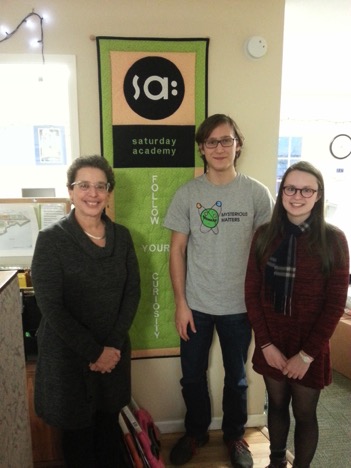Tags
"equality"
Reed College Admissions: Cris Cambianica, Winter Shadow 2016

I did my winter shadow with Kati Sweaney from Reed’s admission office. I applied for the shadow not knowing much about admissions, but knowing that I am generally interested in institutional diversity and equity. Since I have mostly been involved in these objectives from the student advocacy end and given that I want to do institutional diversity work after graduation, I thought that learning about admissions would be a good way to observe the contested terrain of institutional diversity and equity policies. The experience was generally so positive that I left the winter shadow considering that admissions’ counseling could be a great career path for me after graduation.
Kati very intentionally framed my shadow with my interest in diversity at its heart. She scheduled meetings for me with almost every counselor at Reed so that I could ask questions about working in admissions and the opportunities as well as constraints that the Reed admission team has when trying to advance equity at Reed. I also was able to shadow her while doing many of the different functions of admissions: information sessions with prospective students, outside reader training, outreach work at NAYA, and collaborative meetings between Disability Support Services and admissions. Through this shadow I was really able to see the number of partnerships that admissions has with different parts of campus, the scope of impact it has, and the variety of tasks that any day may bring. Kati was very attentive to making sure that the shadow aligned with my goals and the entire admissions staff was extremely generous in sharing their time with me. The week was an extremely positive experience and I would recommend the shadow to anyone who is interested.
Continue reading Reed College Admissions: Cris Cambianica, Winter Shadow 2016
Saturday Academy: Hadley McCammon, Winter Shadow 2016

In my first email conversation with Dr. Jeri Janowsky, my winter shadow sponsor, she sent me an article explaining how the education gap between high socioeconomic status (SES) children and low SES children grows in the summer time but stays constant during the school year (Beth M. Miller, 2007). The article explained that this phenomenon is largely a due to the fact that high SES students usually have the opportunity to enroll in enriching summer camps, while low SES students do not.
Saturday Academy aims to bridge this gap by offering classes on Saturdays and over the summer to students of all income levels. This January, I had the opportunity to work for Saturday Academy in Portland for two weeks. I was struck by the non-profit's dedication to a single mission: to level the playing field for all students. As a result, I learned the importance of having a strong mission for non-profits. During a staff meeting I attended while at Saturday Academy, Jeri continuously pushed her staff to share any news they had on their projects, but more importantly, to make sure they understood how everything they were doing fit into the overall mission of Saturday Academy.
Over the course of the two weeks I spent working and learning at Saturday Academy, I also learned how non-profits function successfully. The role of the non-profit is to collect, organize, and distribute the resources of the community in order to accomplish a specific goal. In the case of Saturday Academy, bettering the education of the community’s children. Saturday Academy collects grants and the expertise of community members who instruct their classes, organizes them and provides them with guidance, and then distributes them to the community by way of classes.
Continue reading Saturday Academy: Hadley McCammon, Winter Shadow 2016
